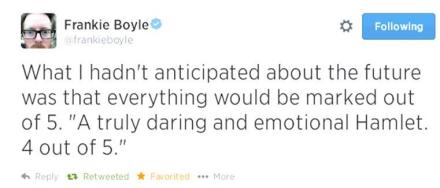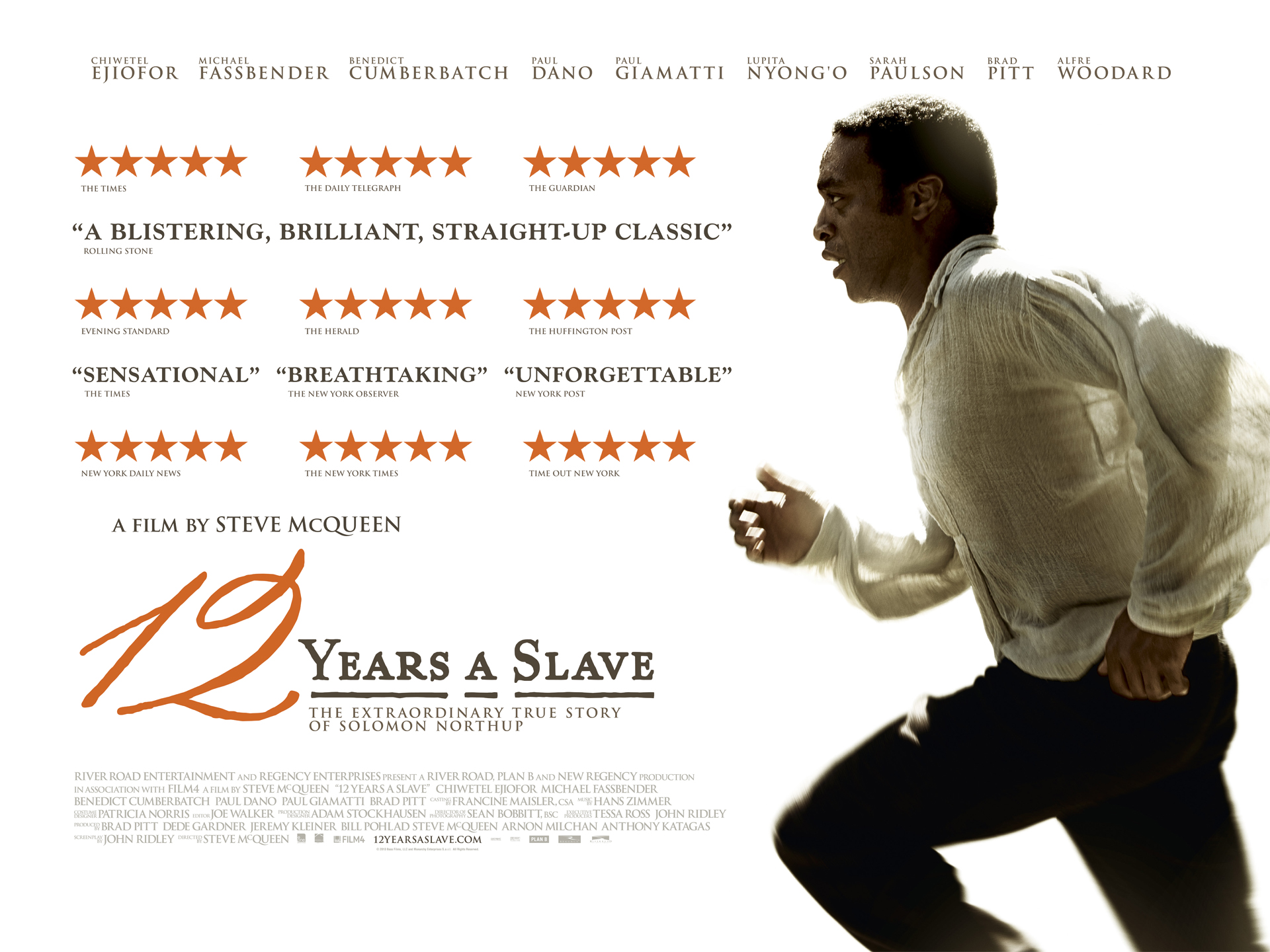If you regularly read my film reviews – and if you don’t then why not – you might notice I don’t do star ratings. I did them in my very first reviews on here, of Cloud Atlas and I Give it a Year (4 and 3 stars respectively) and then stopped after that. The Guardian does them, The Times and Empire all do them, and when I’m looking for a film to watch I’ll look up the Rotten Tomatoes score if I haven’t heard of it. I just have a problem with prescribing them myself.
Take the two films above for example. I’ve decided that Cloud Atlas is better than I Give It a Year. But I saw I Give It A Year first, so set the bar with the first film, without Cloud Atlas to compare it to. This is a problem that can go on forever until you’ve seen all the films for all eternity and work out how you’re ranking your Godfathers against your Grace of Monaco’s.
Now, clearly, this isn’t possible and I’m exaggerating. But if you were to see one film, and decide to give it 3 stars, say, The Talented Mr Ripley, and then you saw the similar but better Catch Me If You Can, you’ve got to give that more stars. Even if really you only think it’s a 3 star film and poor old Mr Ripley is only a 2.
Star Ratings can be handy if you’re only glancing at a review, and want to get the point quickly – if a film has 1 star you definitely won’t be bothering but if it has 4 you might take a punt. But for me, I don’t feel comfortable coming to a decision that final. Often I’m not entirely sure of my thoughts until I’ve written them down and read it back. In a review you can talk about the nuances of a film, the good points and bad points in a way that explains your view of it without revealing anything which would spoil enjoyment. As Frankie Boyle put it on Twitter last September:
The way you judge one film is going to differ from the way you judge another, (as it should) and you can’t, for example, compare a silent 1927 Hitchcock film within the same parameters as something like a 2014 Michael Bay film. As time moves on the boundaries of what is expected from blockbuster cinema fluctuates and, as well as changing technology, cinema is partly ruled by what is fashionable. Each film you see will have its own merits and its own downfalls, and will be loved by different people for different reasons. For me to put a number on this makes 0 star of sense.










 Richard Mayhew (McAvoy) helps a lost looking girl and becomes inextricably involved in the magical world of London Below, changing his life forever.
Richard Mayhew (McAvoy) helps a lost looking girl and becomes inextricably involved in the magical world of London Below, changing his life forever.